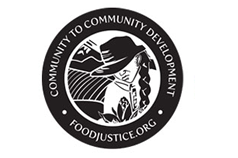JUUstWA Signs on Faith letter to Congress asking for passage of the Afghan Adjustment Act
On July 20, 2023, JUUstWA Board members agreed to become signers on a letter to Congress to pass the Afghan Adjustment Act, legislation that would follow through on our commitment to Afghan people who support the U.S. during our activity there. Many loyal Afghan people were left behind in the withdrawal in 2021 and those that were brought to the United States did not received the resources and services needed to establish life here in the United States. Draft letter is below.
Dear Members of Congress,
As 108 religious leaders and 61 national, state, and local faith-based organizations representing many faith traditions, we urge you to support and work to immediately pass the bipartisan Afghan Adjustment Act of 2023 (S. 2327 / H.R. 4627). If passed, the bill would provide a clear path to permanent status for Afghans living in the U.S. and expand pathways to protection for vulnerable Afghans left behind. On July 13th, the Afghan Adjustment Act was introduced as an amendment to the National Defense Authorization Act (NDAA). We strongly encourage your support of this crucial measure and its inclusion in the NDAA to provide stability and safety to tens of thousands of Afghans, many of whom risked their lives in service of the U.S. mission.
As communities of faith, we are called by our principles and sacred texts to the spiritual practice of welcome. Our congregations have historically played key roles in meeting the needs of displaced people, a tradition that has come to include supporting Afghans who have fled from the violence and persecution of the Taliban. For nearly two years, congregations and organizations have mobilized to connect Afghans with housing, language services, employment, transportation, and social support as they rebuild their lives in the U.S. However, Afghans who have become integral to our communities will continue to face significant obstacles until Congress demonstrates moral leadership by passing the Afghan Adjustment Act.
As we approach two years after the fall of the elected Afghan government in August of 2021, the need for an attainable path to permanent status for Afghans living in the U.S. has never been more urgent. More than 76,000 at-risk Afghans have been welcomed into the United States via “humanitarian parole” which provides only temporary protection and no clear path to permanent residency. Though the vast majority of Afghan parolees are eligible for asylum or Special Immigrant Visas, due to long backlogs and processing delays, according to U.S. Citizenship and Immigration Services, fewer than 10% have secured permanent protection.
The Afghan Adjustment Act would provide stability and security to the thousands of Afghan evacuees who remain in legal limbo as their initial period of protection is set to expire this fall. The new pathway the bill creates would be cost-effective and secure, and there is significant precedent of Congress coming together to pass similar adjustment acts for others that have been evacuated to the U.S. under humanitarian parole.
As religious leaders, congregations and faith-based organizations, we join with a diverse range of supporters calling for the immediate passage of the Afghan Adjustment Act, including veterans, businesses, national security experts, and women’s rights leaders. Around the nation and across the political spectrum, a broad consensus has emerged: Congress must stand up for displaced Afghans and immediately pass the Afghan Adjustment Act.
Our nation’s diverse faith traditions call us to love our neighbor, accompany the vulnerable, and welcome the sojourner. We believe that it is a moral imperative to act swiftly to protect Afghans at risk. We look forward to working with you to ensure your support for the Afghan Adjustment Act as part of the National Defense Authorization Act.
Thank you for your attention to this urgent matter.
Sincerely,
Congregations & Faith-based Organizations
Success for WA Immigrants in 2021 Session
 Our platform for the 2021 legislative session has been a total success. The budget provisos that we worked on this year made it into the budget and the two priority bills passed and were already signed by the governor!
Our platform for the 2021 legislative session has been a total success. The budget provisos that we worked on this year made it into the budget and the two priority bills passed and were already signed by the governor!Workers
- There will be an income replacement program for Washington’s undocumented workers who lost their jobs or lost their income due to the pandemic. There will be an implementation process and afterwards we will be sharing more about the program and how your members will be able to access it. This proposal includes funds for a work group to create a proposal to create a permanent program for undocumented workers who suffer loss of income in similar cases.
Healthcare
- $35 million was appropriated to provide healthcare services to people with little or no health coverage, regardless of immigration status. This will be provided through grants to providers, and
- A long-term plan is also included - funds will be used so that the Health Benefit Exchange can explore opportunities to facilitate the enrollment of people excluded from Medicaid or federal programs, such as undocumented persons, to a state health program for the year 2024. One option for the Exchange is to develop an application for a federal waiver. Other exceptions were included.
Detention and deportation
- HB1090, Banning Private Prisons, has been passed by the legislature and signed by the governor! The contract for the Northwest Detention Center expires in 2025 and cannot be renewed.
Legal services
- HB1072, Eliminate Restrictions on the Use of Civil Legal Aid Funds, has been passed by the legislature and signed by the governor! This change will remove the restriction on the use of civil legal aid funds that does not allow the funds to be used to help undocumented persons.
FARM WORKFORCE MODERNIZATION ACT (FWMA) IS BAD FOR FARMWORKERS-Please Add Your Opposition
 On Thursday March 18th the Farm Workforce Modernization Act passed the house with a 247-172 vote; the majority of votes in favor coming from Democrats.
C2C and Farmworker organizations nationally have opposed this legislation since it was introduced in 2019 during the Trump administration. We are deeply concerned that Democrats are giving in to political pressure to move quickly on immigration bills; with a dangerous tradeoff that will set in place the long-term implications of the FWMA.
We remain opposed to the FWMA as it is written.
We urge our supporters to reach out to your senators and tell them to vote “NO” on this bill.
While it is being touted as a bipartisan effort to attain a path for citizenship, what is being left out of the conversation is that this bill’s “path” sets up an 8-year period of exploitation that farmworkers have to survive in order to eventually qualify for citizenship. Workers who are injured during the eight-year process will be disqualified. The ultimate recommendation for citizenship will have to come from employers, which further entrenches the longstanding power imbalance between workers and farm owners.
Two dangerous long-term mandates in this bill are forcing agricultural employers to use E-Verify, the faulty audit system that has resulted in massive detention and deportation. This will put millions of undocumented people living and working in the United States at risk.
The other mandate is linking legalization to the exploitative federal H2A (guest worker) program, and permanently expanding it, making it harder for workers to organize and easier for corporate agriculture to obtain and exploit cheap labor, instead of hiring farmworkers already living in the U.S.
Read our joint statement with the Food Chain Workers Alliance here.
Sign on to Oppose FWMA Here!
Call and write your senators THIS WEEK and ask them to vote NO on the FWMA. Find your senator’s contact info here!
On Thursday March 18th the Farm Workforce Modernization Act passed the house with a 247-172 vote; the majority of votes in favor coming from Democrats.
C2C and Farmworker organizations nationally have opposed this legislation since it was introduced in 2019 during the Trump administration. We are deeply concerned that Democrats are giving in to political pressure to move quickly on immigration bills; with a dangerous tradeoff that will set in place the long-term implications of the FWMA.
We remain opposed to the FWMA as it is written.
We urge our supporters to reach out to your senators and tell them to vote “NO” on this bill.
While it is being touted as a bipartisan effort to attain a path for citizenship, what is being left out of the conversation is that this bill’s “path” sets up an 8-year period of exploitation that farmworkers have to survive in order to eventually qualify for citizenship. Workers who are injured during the eight-year process will be disqualified. The ultimate recommendation for citizenship will have to come from employers, which further entrenches the longstanding power imbalance between workers and farm owners.
Two dangerous long-term mandates in this bill are forcing agricultural employers to use E-Verify, the faulty audit system that has resulted in massive detention and deportation. This will put millions of undocumented people living and working in the United States at risk.
The other mandate is linking legalization to the exploitative federal H2A (guest worker) program, and permanently expanding it, making it harder for workers to organize and easier for corporate agriculture to obtain and exploit cheap labor, instead of hiring farmworkers already living in the U.S.
Read our joint statement with the Food Chain Workers Alliance here.
Sign on to Oppose FWMA Here!
Call and write your senators THIS WEEK and ask them to vote NO on the FWMA. Find your senator’s contact info here!
Town Halls are Opportunities to Meet with Legislators
At this point in the legislative session, it would be a good idea to meet with your legislators to discuss pending legislation. Most legislators are scheduling town halls online, and you can find out when at the Washington Conservation Voter website. Some will let you ask questions beforehand, which is a good opportunity to discuss our legislative priorities. Here are some of the priorities we discussed in the Justice Summit.
- Environmental priorities: Fluorinated Gases, Clean Fuels, Growth Management Act, Building Electrification.
- Racial Justice priorities: Insurance fairness act, Healthy Environment for All (HEAL) act.
- Criminal Justice priorities: Legal Financial Obligations.
Action Network.org and the ACLU Invite You to Support Immigrant Health Care
Access to health care should be available to all, regardless of immigration status. Equitable access to health care coverage is particularly crucial now, as underlying inequities have been exacerbated by the pandemic. Immigrants and communities of color are disproportionately contracting, hospitalized for, and dying from COVID-19.
Demand more equitable health care access from lawmakers and ensure the health of Washington’s communities.
Equitable access to health care coverage is particularly crucial now, as underlying inequities have been exacerbated by the pandemic. Immigrants and communities of color are disproportionately contracting, hospitalized for, and dying from COVID-19.
Demand more equitable health care access from lawmakers and ensure the health of Washington’s communities.
